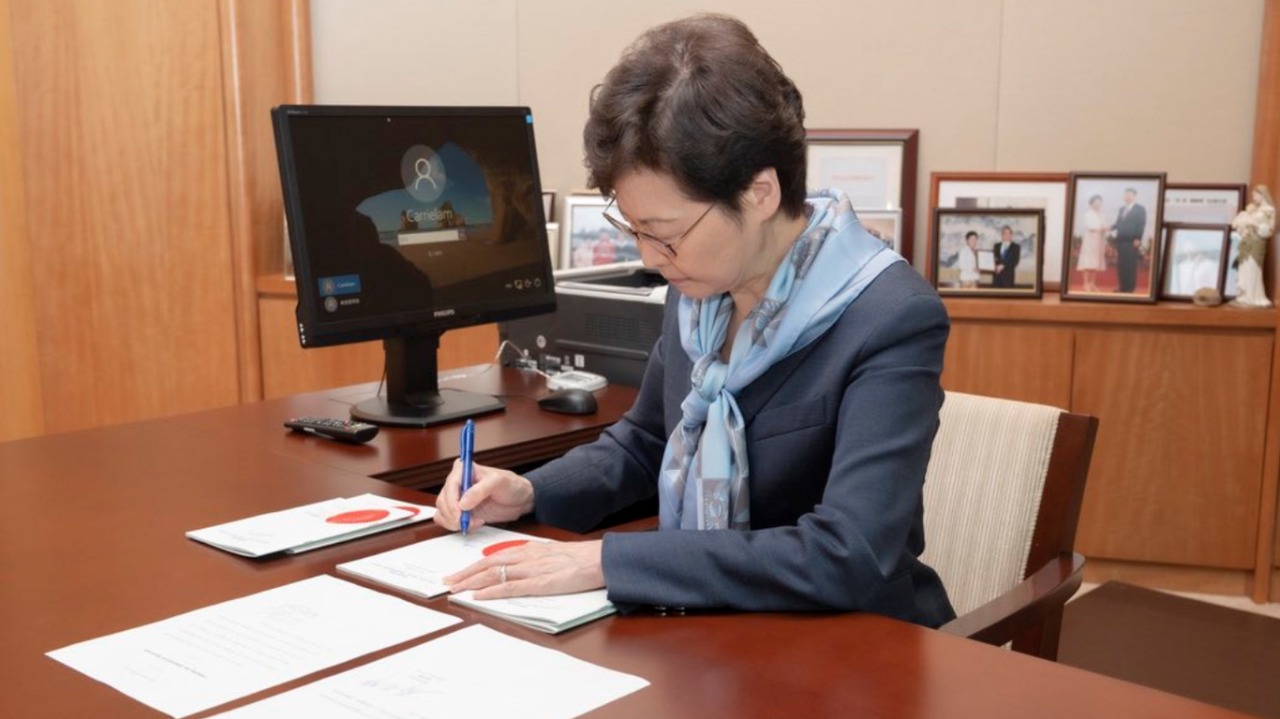The coronavirus pandemic is rapidly fanning out in Hong Kong with the city recording over 100 cases on a daily basis, for the past 10 days now. Hong Kong is witnessing a “third wave” of infections which can overburden its healthcare system in the coming days. Even though the total number of positive cases remain lower on a global scale, the shooting cases post an almost contained scenario pose new challenges for the authorities there.
To achieve desirable results in containing the latest spread, the city has enforced new measures that are stricter, including the ban on social gatherings and only allowing two people to be together in public at a time. As per the BBC reports, health experts have hinted at a possibility of Hong Kong bouncing back to recovery in the light of the reinforcement of social distancing norms that have aided in the slowing down of the virus spread. The estimation is that within another four to six weeks Hong Kong might be able to achieve back the status of close to zero local infections.
On the political front, the Hong Kong government has announced that the parliamentary elections scheduled for September would be postponed by a year, in the wake of the ongoing health crisis. Chief Executive Carrie Lam said on Friday that if necessary, she would call for emergency powers in order to put back the election. She termed it as the “most difficult decision” she has made in recent months.
This decision of the government has met with sharp criticism from the opposition as they have accused the state of using the pandemic as a cover for making way for the draconian Chinese national security law. Defending the official decision of deferring the elections, Carrie Lam said, “This postponement is entirely made based on public safety reasons, there were no political considerations.”
The opposition, that constitutes pro democracy candidates, were hopeful of securing a majority in the Legislative Council (LegCo) in September’s poll. The recent dissent against Beijing’s polemic national security law would have worked in their favour. They had achieved exceptional success in the previous year’s district council elections, wherein they had bagged 17 out of 18 councils.
The Legislative Council, also known as the LegCo, comprises 70 seats, out of which 35 seats are filled through direct elections by public vote. The remaining 30 seats are that of the “functional constituencies” which represent areas of special interest like banking, business and trade and have a history of being majorly pro China.Finally, the five seats that are left belong to the publicly elected district councillors. Though criticised for being quite undemocratic with only a meager amount of representatives elected by the public, the state defends this set-up of the LegCo as being instrumental in curbing populism and safeguarding Hong Kong’s business interests and activities.
Historically speaking, Hong Kong, was formerly a colony of Britain. In 1997, the Chinese government got the city as a result of an agreement that guaranteed maximum autonomy to Hong Kong for fifty years. Beijing’s recent national security law undermines that sovereignty and hence has met with vociferous protests from the pro-democratic masses as it stood in direct opposition of the agreement, jeopardising Hong Kong’s autonomous status.
Responding to the mass protests, the government on Thursday, banned 12 pro-democracy candidates from participating in the upcoming elections. Following this, on Friday, the Hong Kong police created a wanted list and put six overseas activists on it, suspecting them to be involved in anti-national activities as per the newly enacted national security law. Simon Cheng, a former employee of the UK’s Hong Kong consulate is one of the suspects on the list who recently fled to the UK and has been granted political asylum there on the basis of the reported tortutre at the hands of the Chinese state.
On the other hand, the government said that it is more concerned about the status of the virus spread in the city. Ms Lam stated that Hong Kong’s pandemic was in “its worst situation since January” and “as community spread continues, the risk of a large-scale outbreak will increase”. She further informed that participation of 4.4m registered voters in Hong Kong would mean “a large-scale gathering and an immense infection risk” in case the elections happen as scheduled. Elections in September would also be risky for the elderly voters and many overseas as well as those registered in mainland China would not be able to be a part of the elections.
Opposition has contested that as per the local election laws, the polls can only be deferred by 14 days, or else it would “trigger a constitutional crisis in the city. A disqualified activist Joshua Wong took to twitter and wrote that the pandemic was being used as “as an excuse to postpone the election” and was “the largest election fraud in #HK’s history.”Many experts also say that a year-long delay is not the only way out and other safety measures can be enforced to ensure safe elections.









